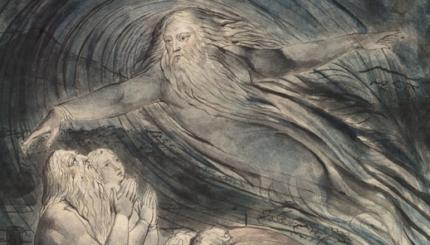In this week’s Torah portion, God explains that God has called not only Betzalel and Oholiav to execute their craft on all the holy items that need to be built, but that “in the heart of all who are wise-hearted, I put wisdom so that they will make all that I have commanded.” (Shemot 31:6)
Many people have tried to figure out what distinguishes humans from animals: some have postulated it is our “higher emotions,” but it turns out animals have those (and people have recognized that for a long time); some have suggested it is our intellect – but if that is so, then it is intellect of degree, not kind, for animals are able to solve problems in all kinds of ways. Some have suggested it is language – but it turns out that many animals are able to use not only vocabulary, but syntax, and some even have names for one another. Some say it is morals – but clearly anyone who has ever had a dog knows that an animal knows when it has done wrong.
What I have never heard of an animal doing is expressing the drive to create – to create beauty through art, or to have a craft and make the utilitarian things we need beautiful.
The Torah calls certain individuals chochmat-halev “wise-hearted.” But all human beings have a certain measure of this drive. We all yearn for beauty, and many yearn to create things of beauty. What makes some individuals “wise-hearted?” Instead of simply enjoying the beauty, or perhaps relegated their yearnings to small gestures, they turn their lives into their craft, dedicating time to learning the skills it takes to create not just the occasional beautiful object – and then they send it out into the world, to be regarded by others, to be judged, and to be used.
And when we do this, when we choose a skill and hone it, turning it towards creation, we are b’tzelem elohim, acting in God’s image. For what was God’s creation if not a gesture of art? For a human, art is limited. If we are especially skilled, and work hard, and lucky, too, then perhaps our works will live on after us, at least for a time.
For God, creation is both temporary and permanent – in medieval times some in Arab lands there was a Muslim philosophy that the world was created and destroyed and created anew at every moment. And in the God’s-eye sense, that is true: the sunset that we saw tonight will never be seen again, the child grows to adulthood, species come into being and go extinct. And yet, the universe endures. In its beauty, for a time, God has our regard, and when we are wise-hearted, perhaps for a flicker of God’s eye, we have God’s.
Like this post? Join the conversation through MyJewishLearning’s weekly blogs newsletter.
Torah
Pronunced: TORE-uh, Origin: Hebrew, the Five Books of Moses.


